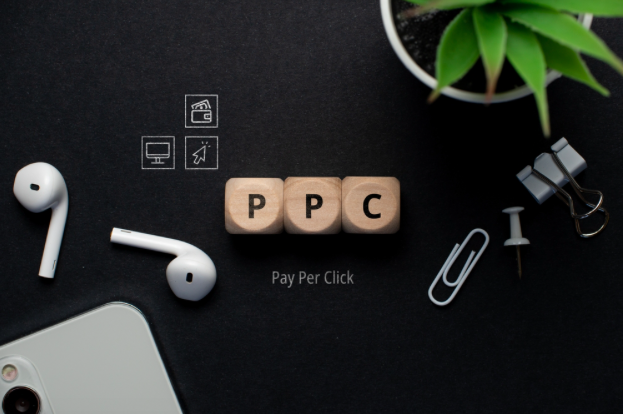Every business wants more visibility, leads, and—ultimately—more revenue. But with so many marketing strategies out there, it’s easy to feel overwhelmed.
One method that consistently sparks debate is whether PPC marketing is worth it in terms of long-term profitability and sustainability.
Some swear by its ability to generate instant traffic, while others argue it’s a money pit if not managed correctly. So, which is it?
Let’s break it down.
The Appeal of PPC: Why Businesses Love It
PPC is like flipping a switch for traffic. The moment your campaign goes live, potential customers start seeing your ads.
Unlike organic strategies (SEO, social media, content marketing), which take time to build momentum, PPC delivers immediate results. But that’s just the tip of the iceberg.
- Instant Visibility – Google Ads and platforms like Facebook and LinkedIn ensure your business appears right in front of people actively searching for your product or service. Instead of waiting for organic rankings to improve, you can drive traffic from day one.
- Highly Targeted Audience – With PPC, you’re not throwing ads into the void. You can target users by demographics, interests, behaviors, and even the exact keywords they’re typing into Google. This level of precision minimizes wasted spend and maximizes conversions.
- Scalability & Control – Want to increase your ad spend during a busy season? No problem. Need to pause campaigns when demand slows? Easy. PPC offers unmatched control over your budget, allowing you to adjust in real time.
The biggest draw? It’s measurable. Unlike traditional advertising, where you hope your billboard or TV ad gets noticed, PPC gives you clear data on what’s working and what’s not.
Click-through rates, conversion rates, cost per acquisition—you get all the insights needed to fine-tune your approach.
The Downsides: Why Some Businesses Struggle with PPC
If PPC is so powerful, why do some businesses end up frustrated with it? The answer lies in execution.
- Cost Can Skyrocket – PPC isn’t cheap, especially in competitive industries. A single click can cost anywhere from a few cents to over $50, depending on your niche. If you’re not optimizing your campaigns, you could be burning through your budget without seeing a return.
- Requires Constant Monitoring – Unlike SEO, which has a compounding effect over time, PPC is pay-to-play. The moment you stop funding your ads, your traffic stops. Poorly managed campaigns can lead to wasted spend, irrelevant clicks, and low-quality leads.
- Ad Fatigue is Real – Running the same ad over and over? Users will start ignoring it. To keep engagement high, you’ll need fresh creatives, compelling offers, and A/B testing—all of which take time and expertise.
Beyond that, competition can be brutal. If you’re in an industry where every competitor is bidding aggressively, PPC costs can climb to the point where profitability becomes questionable.
When PPC Makes Sense for Your Business
PPC isn’t a one-size-fits-all solution, but there are certain scenarios where it’s almost a no-brainer.
- You Need Immediate Traffic – Just launched a new product? Running a limited-time offer? PPC can drive results fast. Unlike SEO, which takes months to gain traction, PPC delivers traffic instantly.
- You Have a High Customer Lifetime Value (CLV) – If your customers tend to spend a lot over time (think SaaS companies, legal services, high-end eCommerce), paying more per click can still be profitable.
- Your Industry is Highly Competitive – Some niches are dominated by PPC. If all your competitors are running ads, relying solely on organic search might leave you invisible.
On the flip side, businesses with extremely low margins might find that PPC costs outweigh their potential earnings. If your product or service isn’t high-ticket or high-retention, other marketing strategies might be a better fit.
Maximizing PPC Success: Avoiding Common Pitfalls
If you’re thinking about running a PPC campaign, here’s how to ensure it pays off.
- Start with a Clear Goal – Are you aiming for brand awareness, lead generation, or direct sales? Knowing your objective will shape your campaign strategy.
- Optimize Landing Pages – Don’t send traffic to a generic homepage. A well-designed landing page with a strong call to action can significantly boost conversions.
- Use Negative Keywords – Filtering out irrelevant searches prevents wasted clicks. If you’re selling high-end watches, you don’t want to pay for clicks from people searching for “cheap watches under $50.”
- Track and Adjust – PPC isn’t “set it and forget it.” Regularly reviewing your campaign data helps you spot underperforming ads and reallocate your budget effectively.
For those still debating whether PPC marketing is worth it for their specific business model, the key lies in testing. Running small, controlled campaigns before scaling can help determine if PPC aligns with your goals.
The Bottom Line: Should You Invest in PPC?
Here’s the truth—PPC can be a goldmine or a black hole. It all comes down to strategy, execution, and ongoing optimization.
If you have a solid plan, a reasonable budget, and the ability to track performance, PPC can bring in leads and revenue faster than any other digital marketing strategy. But if you go in blind, it can just as easily drain your resources with little return.
That’s why businesses should carefully evaluate whether PPC marketing is worth it based on their goals, industry competition, and expected return on investment.
For those looking to maximize results, Leapyn can help you navigate the complexities of PPC, ensuring your campaigns generate meaningful growth. Whether you’re launching your first campaign or refining an existing one, our expertise ensures every click counts.











